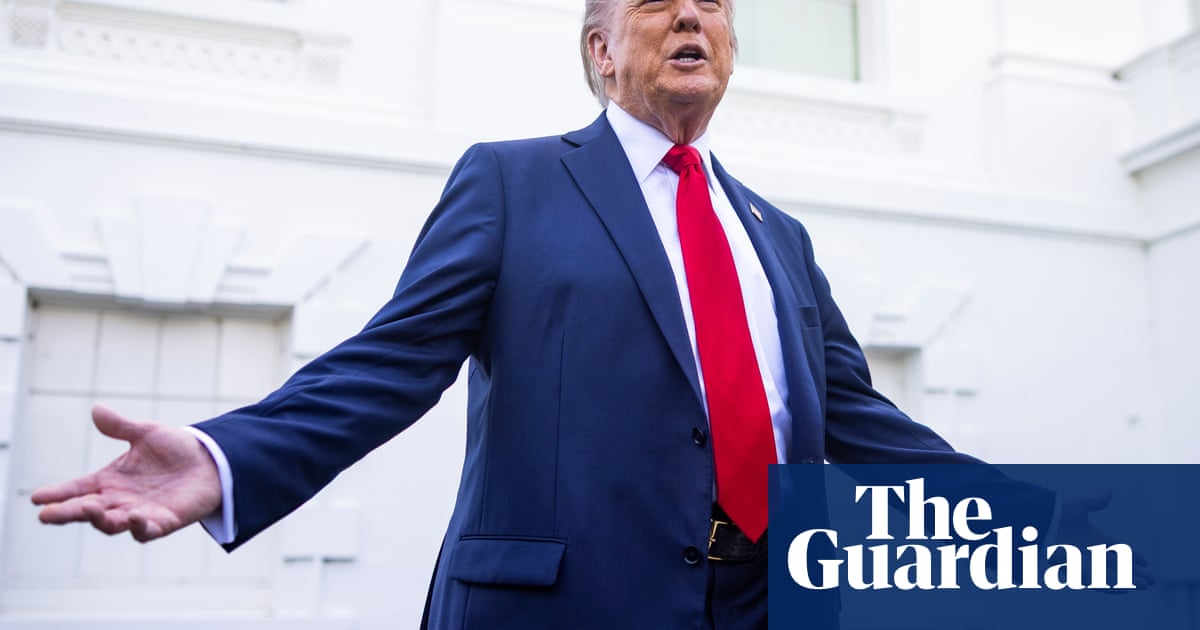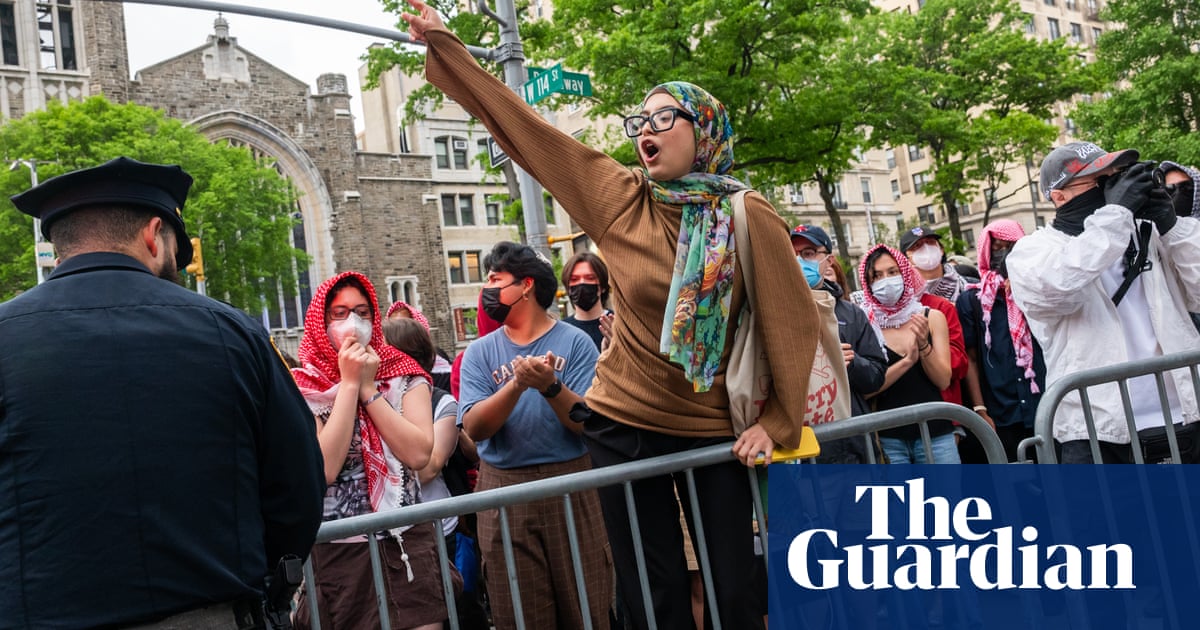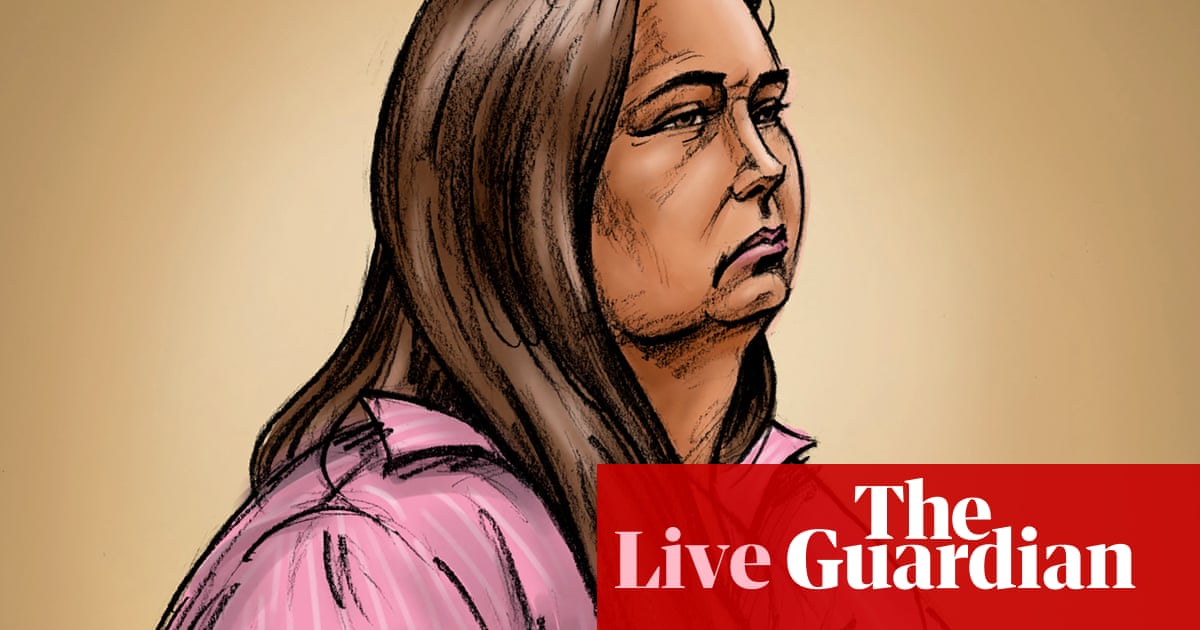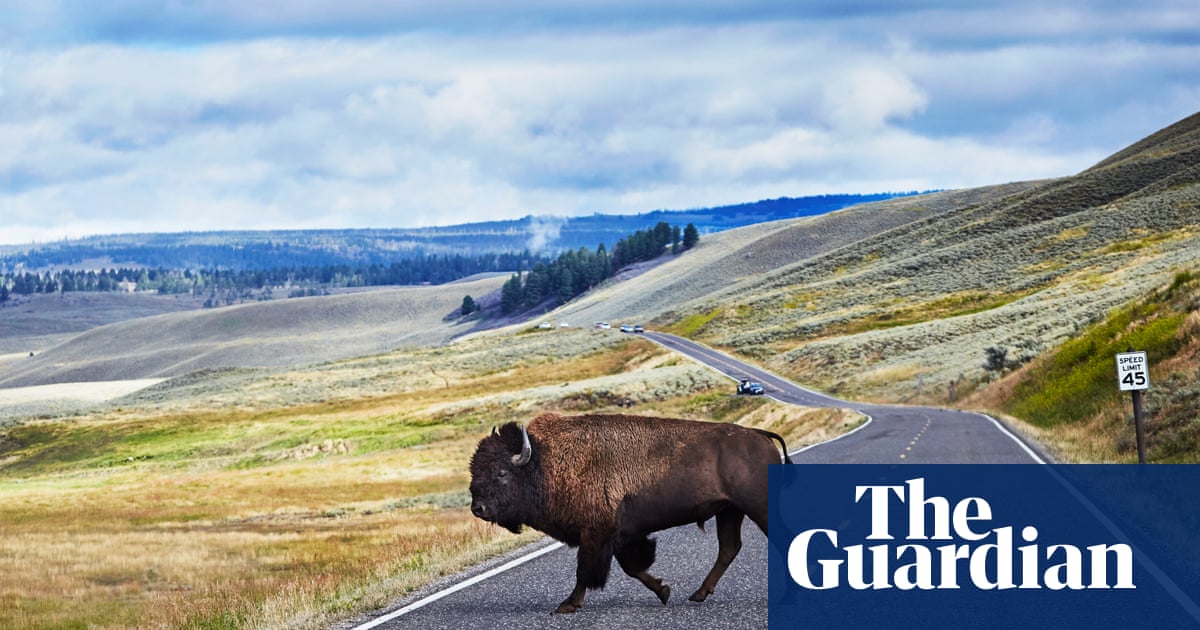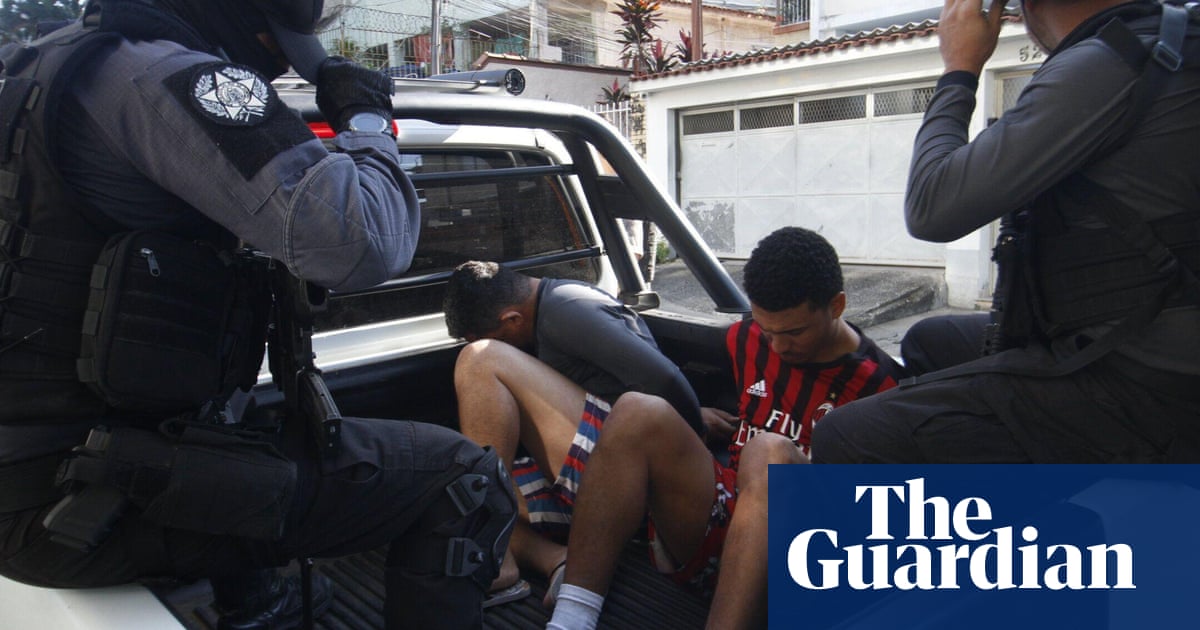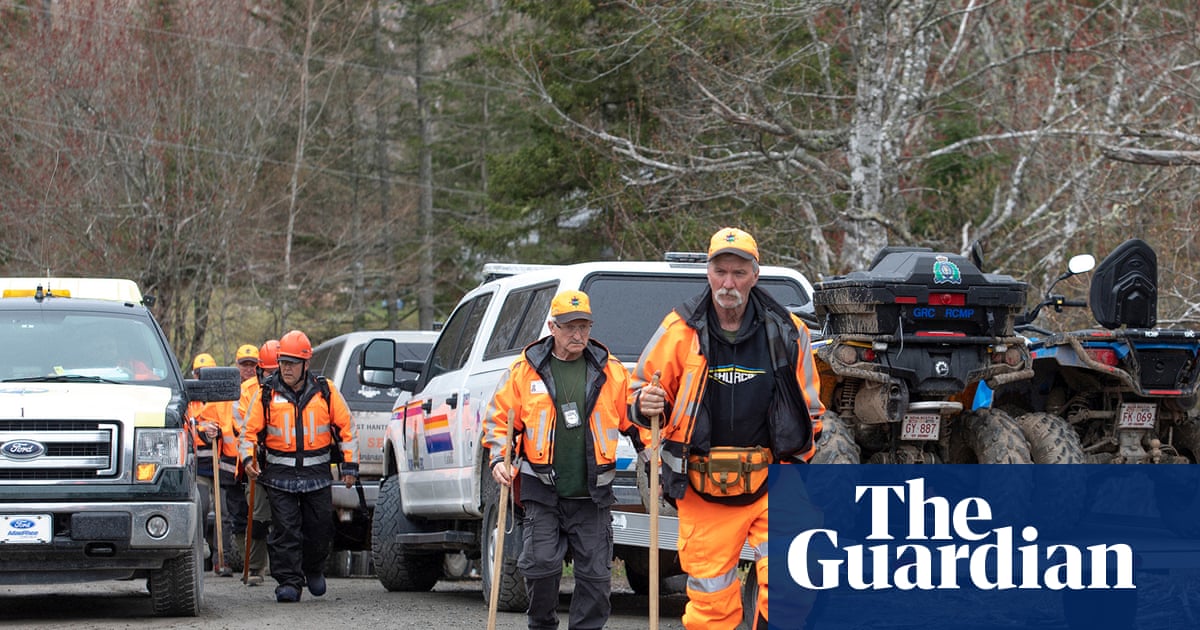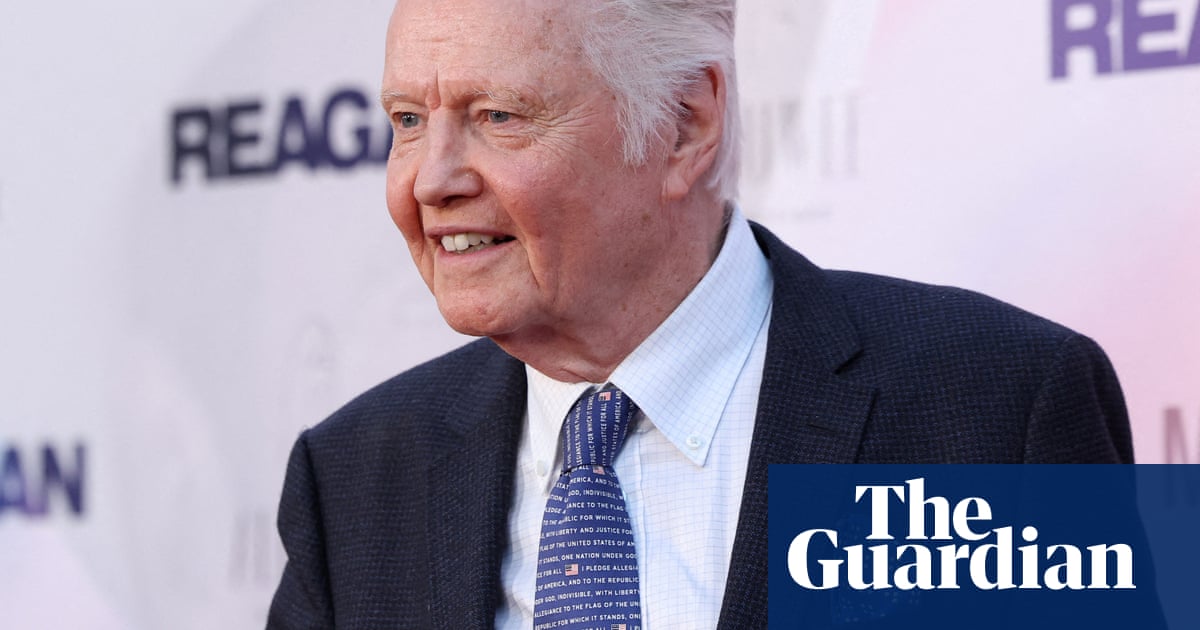Carolina Valladares Pérez, a Washington-based correspondent for the government-funded international news service Voice of America, has reported from places where press freedom is severely restricted – war zones and autocratic states – in the Middle East and across Latin America. Intimidation and threats from state officials were not unusual – but she always managed to get the story out.
Now for the first time in her career, Valladares Pérez says she has been silenced – not by a faraway regime, but by the government of the United States.
“Nicolás Maduro did not close our bureau,” she said, of Venezuela’s authoritarian leader. “Donald Trump closed it. I find this astonishing.”
Valladares Pérez is one of hundreds of VOA journalists who remain shut out of their newsroom nearly two months after Donald Trump signed a late-night executive order aimed at dismantling their parent company, the US Agency for Global Media (USAGM). The journalists had been hopeful they might be able to return to their broadcasts this week – VOA was even included in the rotation of news outlets assigned to cover the president as part of the White House press pool – but whiplashing court orders have clouded their path forward.
“We have 3,500 affiliates around the world – these are television stations, radio stations, digital affiliates, who depend on our content,” said Patsy Widakuswara, VOA’s White House bureau chief, who is the lead plaintiff in a lawsuit challenging the president’s authority to gut an agency chartered by Congress. “The void is going to be filled by our adversaries – it already is.”
VOA’s pro-democracy programming reaches hundreds of millions of people across the globe, broadcasting in 47 languages. It is often the only alternative to state-run media in places where press freedom is severely restricts, including in Russia, China and Iran. But the administration has denigrated the outlet as the “Voice of Radical America” and accused it of producing “propaganda”.

Following Trump’s March edict, VOA’s broadcast went dark for the first time since its founding during the second world war, initially to counter Nazi propaganda. Some radio stations began playing music instead of the news. VOA’s website remains frozen in time, the homepage dated to that Saturday morning. As many as 1,300 VOA employees have been placed on administrative leave.
The order also directed USAGM to cancel the federal grants that support VOA’s sister outlets Radio Free Europe/Radio Liberty, Radio Free Asia and the Middle East Broadcasting Networks.Without funding, those broadcasters have struggled to remain operational.
The Trump administration has defended the decision to cut the broadcasters as part of its effort to downsize the federal government and slash what it described as “frivolous expenditures that fail to align with American values or address the needs of the American people”.
“Shut them down,” Trump ally and adviser Elon Musk declared on X earlier this year, as his so-called “department of government efficiency” began its work.
In response to the president’s March order, Kari Lake, a fierce Trump loyalist and prominent election denier who was installed as a special adviser to the US’s global media agency, declared that VOA’s networks “not salvageable”. But it appears the former local news anchor turned unsuccessful Republican candidate is now working to bring the news outlet back on air and online in some capacity.
In a statement on Monday, Lake said “the plan has always been to have meaningful, comprehensive, and accurate programming. However, this administration was halted in its tracks by lawfare, which prevented the implementation of much-needed reforms at VOA.”
Last month, a federal judge blocked the Trump administration’s efforts to dismantle VOA, as well as Radio Free Asia and the Middle East Broadcasting Networks. But VOA staff and journalists remain on administrative leave while the court process plays out.
The judge, US District Judge Royce Lamberth, later ordered the administration to restore funding Congress appropriated for Radio Free Europe, but the ruling was paused on appeal.
On Saturday, a divided panel of three circuit court judges paused parts of the ruling, ordering the Trump administration to return the VOA employees back to work. In a dissent, federal appeals court judge Cornelia Pillard warned that the stay “all but guarantees that the networks will no longer exist in any meaningful form” by the time litigation is resolved.
Challenging the ruling, attorneys representing the VOA journalists have asked the full US court of appeals for the DC circuit to rehear the case en banc.
The Trump administration’s attempt to dismantle the US’s largest and oldest international broadcaster is part of a broader crackdown on press freedom in the US, journalists and experts say. In late April, the president also signed an executive order aimed at slashing federal funding for NPR and PBS, accusing the news outlets of similarly spreading “radical woke propaganda”.
“The reason we have such a huge audience is because we’re not propaganda,” Widakuswara said. “Much of our audience lives in places where there is government propaganda, and they can smell it a mile away. They turn to us because they trust us.”
Ilan Berman, senior vice-president at the American Foreign Policy Council, said VOA and its sister outlets were an “indispensable” asset in the information war, countering anti-American narratives and disinformation in unfree societies.
“Authoritarian regimes understand very well that controlling information is essential to controlling their populations,” Berman, who serves on the board of RFE/RL and MBN, wrote in an email, while traveling in the Middle East, where he said media outlets hostile to the US already saturate the airwaves.
“America and its allies have unfortunately been playing defense for a while now,” he added. “And the shuttering of our messaging outlets is only going to make those voices stronger, and ours weaker.”
Desperate to return to work, Widakuswara has been leading the charge to raise awareness of VOA’s plight and keep newsroom morale up amid the turbulence of the last several weeks. On May 4, the account, @savevoanow was suspended by X, the platform owned by Musk, for allegedly “violating rules against inauthentic accounts”. The account has since been restored but it unnerved Widakuswara and her colleagues, who have vowed not to remain silent.
“What we’re fighting for is not just for our job but our continued editorial independence,” the White House reporter said.
A ‘reward to dictators and despots’
The silencing of VOA has alarmed press freedom advocates but drew gleeful reactions from Chinese and Russian state media. “We couldn’t shut them down, unfortunately, but America did so itself,” said Margarita Simonyan, editor-in-chief of the Kremlin-backed RT network, who cheered Trump’s “awesome decision”.
The Committee to Protect Journalists (CPJ), a prominent press freedom organization, called Trump’s effort to eliminate the news outlets a “reward to dictators and despots” and urged Congress to restore the agency it created “before irreparable harm is done”.
“When a US president is behaving this way domestically towards media, it creates a kind of permission structure for world leaders to treat the press the same way in their home countries,” said Katherine Jacobsen, the CPJ’s Canada and Caribbean program coordinator.
US-based foreign journalists whose visas are now in jeopardy because of the dismantling of USAGAM say deportation to their home countries would put them at risk of reprisal, imprisonment and possibly even death at the hands of authoritarian governments.
“In Burma, Vietnam, Laos and Cambodia, there were people who fought for freedom and democracy, and they came to work at RFA,” Jaewoo Park, a journalist for Radio Free Asia in Washington, recently told the Guardian. “It’s very risky for them. Their lives are in danger if Radio Free Asia doesn’t exist.”
According to the agency, 10 of its journalists remain jailed or imprisoned around the world – in Myanmar, Vietnam, Russia, Belarus and Azerbaijan.
At the annual White House Correspondents’ Association dinner, the organization’s president, Eugene Daniels, voiced solidarity with VOA’s journalists.
“To our friends at Voice of America, I can’t wait until you’re back at the White House grounds to continue reporting important stories for audiences around the world, especially in countries where leaders suppress the freedom of expression and the press,” he said during a speech that eschewed punchlines in favor of a robust defense of the first amendment and press freedom.
Valladares Pérez is also looking forward to that day.
“Our reporters want to go back to work. Our job is not to be at home, being silent and not publishing,” she said. “Our job is to take our microphones, to keep talking, reaching our audiences and telling them what’s happening in the US. This is our mission.”

 17 hours ago
4
17 hours ago
4
